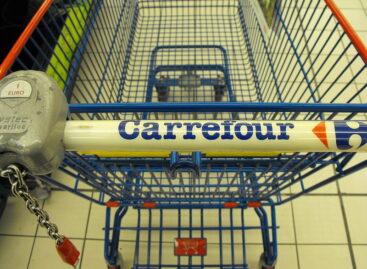This is how environmentally friendly Hungarians consider domestic stores to be
Four out of ten rural and metropolitan respondents (40%) agree that unnecessary or non-recyclable packaging is the biggest environmental waste in stores. Opinions are also divided as to whether unnecessarily strong cooling and heating (16%), excessive lighting (12%), environmental pollution from transport (12%) or goods procured from unsustainable sources (12%) are the most serious problems . A third of the respondents (37%) believe that the environmental protection attitude of the stores shows a mixed picture, and only one in ten (12%) of our compatriots consider their operations to be sustainable.
 Almost two-thirds (61%) of people in Budapest and in the countryside find it important to go to a store or shopping center that operates sustainably or has an environmentally friendly certificate. Every tenth customer decides where to shop based on this. According to the participants in the research, mainly grocery stores, bookstores, flower shops, electronics stores and restaurants pay attention to sustainable operations. Hungarians believe that shops and shopping centers most often try to reduce their ecological footprint with selective waste collection (58%), online communication and e-invoicing (34%), and energy-saving lighting (33%).
Almost two-thirds (61%) of people in Budapest and in the countryside find it important to go to a store or shopping center that operates sustainably or has an environmentally friendly certificate. Every tenth customer decides where to shop based on this. According to the participants in the research, mainly grocery stores, bookstores, flower shops, electronics stores and restaurants pay attention to sustainable operations. Hungarians believe that shops and shopping centers most often try to reduce their ecological footprint with selective waste collection (58%), online communication and e-invoicing (34%), and energy-saving lighting (33%).
Related news
What can companies do for workplace well-being?
Is workplace well-being just a good-sounding concept, or is it…
Read more >The world’s first environmentally friendly milk is here
A small Tasmanian dairy, Ashgrove, has become the world’s first…
Read more >International research: job security is more important to young people than their salary
In recent years, it has become extremely important for employees…
Read more >Related news
Valeo Foods Completes Acquisition Of Appalaches Nature
Valeo Foods Group has completed the acquisition of Appalaches Nature,…
Read more >Carrefour grows in France and Brazil, lags behind in rest of Europe
Carrefour says it is rather pleased with its financial results…
Read more >Food and beverage innovation plunges nearly 50% since 2007: Mintel
The market research firm said about a quarter of items…
Read more >








